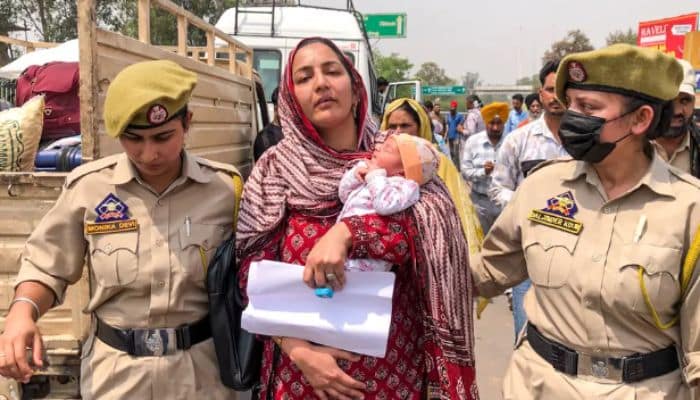In a tragic turn of events, Abdul Waheed, a 69-year-old Pakistani man, died of cardiac arrest in Amritsar just hours before his scheduled deportation to Pakistan via the Attari-Wagah border. He had lived in India for the past 17 years. Authorities initiated his repatriation after the Indian government directed officials to identify and deport Pakistani nationals who overstayed their visas.
A Life in Limbo
According to officials, he was among many Pakistani nationals who had overstayed their visas. Following a directive from the Ministry of Home Affairs (MHA), state governments have begun identifying individuals residing illegally under expired or invalid visa conditions.

The MHA recently revoked visas issued under 12 categories for Pakistani nationals, triggering a wave of repatriations across the country. This policy shift appears to be part of a broader move to tighten security and regulate the presence of foreign nationals, particularly from Pakistan, amid ongoing diplomatic and geopolitical tensions.
Read More: Pahalgam Terror Attack: India Responds Strongly as Tensions Escalate with Pakistan
The Final Hours
Waheed was scheduled to cross the Attari-Wagah border on Wednesday night. However, just hours before his deportation, he suffered a cardiac arrest in Amritsar. Despite efforts to revive him, he passed away before he could return to his country of origin.
The incident highlights not only the emotional toll such policies can take on individuals and their families but also the challenges faced by aging or ill foreign nationals who may have made lives for themselves over the years in India. After 17 years in the country, Waheed’s life came to an abrupt and lonely end, far from home, and without the closure that repatriation might have offered.
The Larger Picture: Visa Revocations and Repatriations
Waheed’s case is not isolated. According to government data, 224 Pakistani and Indian nationals holding “No Obligation to Return to India” (NORI) visas have crossed the Attari border into India recently.
The revocation of visas under 12 categories affects individuals who were residing in India for various reasons — including long-term stay for family reunification, medical treatment, or business. While most were living legally at one point, visa extensions may have lapsed, or their status changed due to evolving policies.
These deportations mark a significant shift in India’s internal security and immigration policy. The directive also places the responsibility on state governments to trace and deport Pakistani nationals, creating a complex operational and humanitarian challenge.
Humanitarian Concerns and Public Response
Waheed’s death has raised humanitarian concerns among civil rights activists and sections of the public. Critics argue that the policy fails to account for long-term residents who may have integrated into Indian society over decades. There is also growing concern over the treatment of elderly or infirm individuals caught in legal and bureaucratic limbo.
Some humanitarian groups have called for more compassionate implementation of the deportation drive, especially in cases involving vulnerable individuals.
Diplomatic Sensitivities
India and Pakistan share a complex and often strained relationship. The repatriation of nationals, even under normal circumstances, is a delicate diplomatic process.
Waheed’s death adds a poignant human element to this political and administrative matter. It underscores the urgent need for systems that are not only legally sound but also sensitive to the human stories behind immigration status.
Conclusion
Abdul Waheed’s sudden death, just hours before his planned deportation, is a stark reminder that immigration policies impact real lives. As India continues its effort to deport Pakistani nationals living illegally, the government must also weigh the humanitarian dimension of such operations.
While national security and legal enforcement are undeniably important, compassion, especially for the elderly and long-term residents, must not be overlooked. Waheed’s story should serve as both a wake-up call and a call to conscience — prompting a balanced, humane approach in managing cross-border populations.











